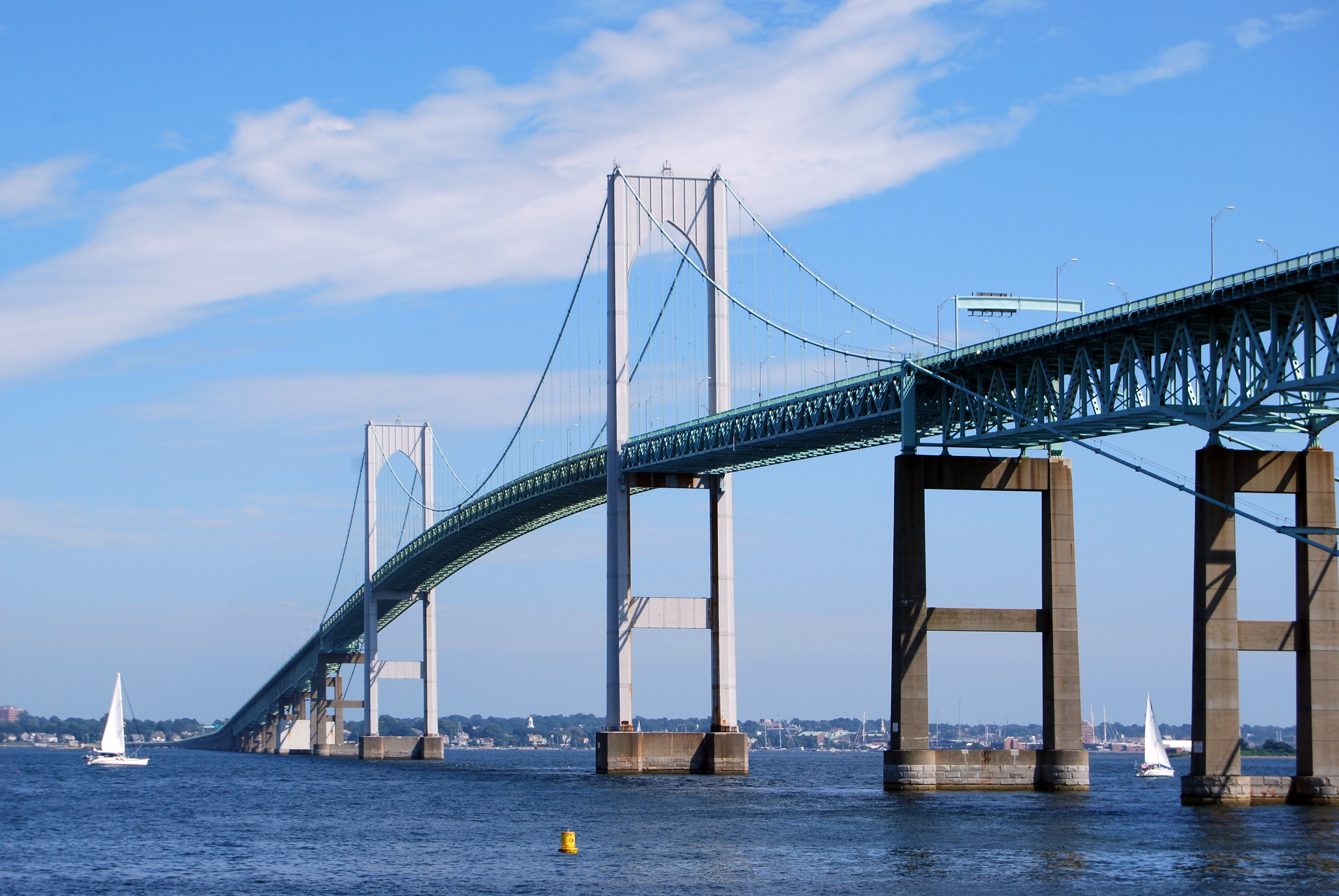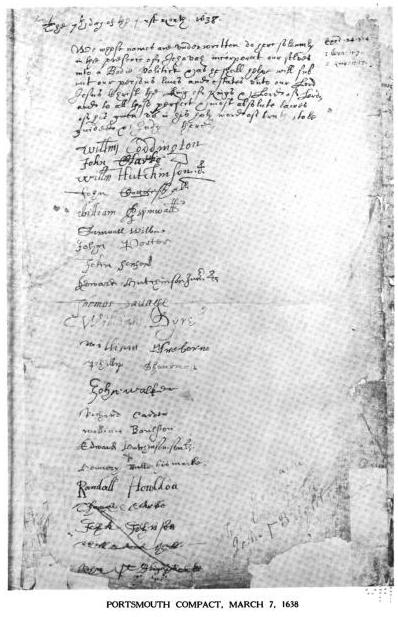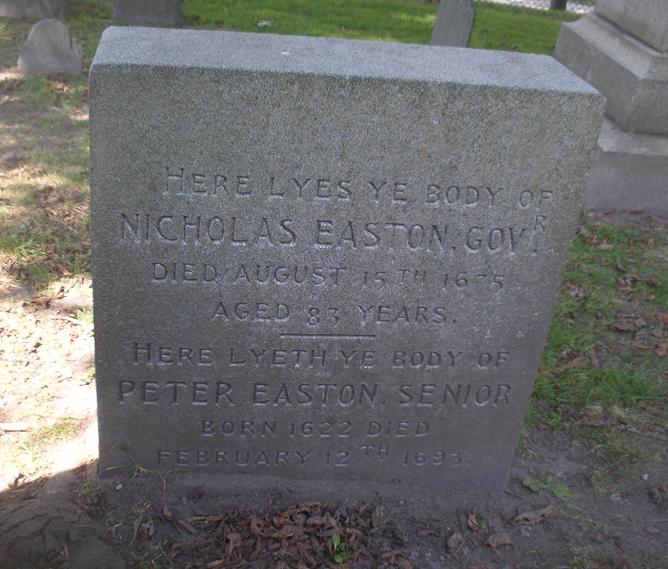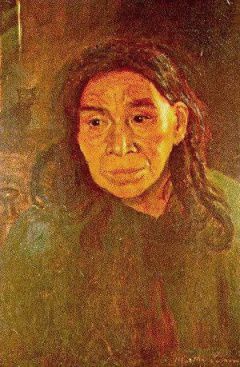|
Aquidneck
Aquidneck Island, also known as Rhode Island, is an island in Narragansett Bay in the state of Rhode Island. The total land area is , which makes it the largest island in the bay. The 2020 United States Census reported its population as 60,109. The state of Rhode Island is named after the island; the United States Board on Geographic Names recognizes Rhode Island as the name for the island, although it is widely referred to as Aquidneck Island in the state and by the island's residents. Aquidneck Island is home to three towns, from north to south: Portsmouth, Middletown, and Newport. Etymology "Aquidneck" is derived from the Narragansett name for the island ''aquidnet''. Roger Williams was an authority on the Narragansett language, but he stated that he never learned the word's meaning. It is unclear how it came to be known as Rhode Island, but the earliest known use of the name was in 1637 by Roger Williams, and it was officially applied to the island in 1644: "Aquethneck sha ... [...More Info...] [...Related Items...] OR: [Wikipedia] [Google] [Baidu] |
John Clarke (Baptist Minister)
John Clarke (October 1609 – 20 April 1676) was a physician, Baptist minister, co-founder of the Colony of Rhode Island and Providence Plantations, author of its influential charter, and a leading advocate of religious freedom in America. Clarke was born in Westhorpe, Suffolk, England. He received an extensive education, including a master's degree in England followed by medical training in Leiden, Holland. He arrived at the Massachusetts Bay Colony in 1637 during the Antinomian Controversy and decided to go to Aquidneck Island with many exiles from the conflict. He became a co-founder of Portsmouth and Newport, Rhode Island, and he established America's second Baptist church in Newport. Baptists were considered heretics and were banned from Massachusetts, but Clarke wanted to make inroads there and spent time in the Boston jail after making a mission trip to the town of Lynn, Massachusetts. Following his poor treatment in prison, he went to England where he publish ... [...More Info...] [...Related Items...] OR: [Wikipedia] [Google] [Baidu] |
Rhode Island
Rhode Island (, like ''road'') is a U.S. state, state in the New England region of the Northeastern United States. It is the List of U.S. states by area, smallest U.S. state by area and the List of states and territories of the United States by population, seventh-least populous, with slightly fewer than 1.1 million residents 2020 United States census, as of 2020, but it is the List of U.S. states by population density, second-most densely populated after New Jersey. It takes its name from Aquidneck Island, the eponymous island, though most of its land area is on the mainland. Rhode Island borders Connecticut to the west; Massachusetts to the north and east; and the Atlantic Ocean to the south via Rhode Island Sound and Block Island Sound. It also shares a small maritime border with New York (state), New York. Providence, Rhode Island, Providence is its capital and most populous city. Native Americans lived around Narragansett Bay for thousands of years before English settler ... [...More Info...] [...Related Items...] OR: [Wikipedia] [Google] [Baidu] |
Battle Of Rhode Island
The Battle of Rhode Island (also known as the Battle of Quaker Hill) took place on August 29, 1778. Continental Army and Militia forces under the command of Major General John Sullivan had been besieging the British forces in Newport, Rhode Island, which is situated on Aquidneck Island, but they had finally abandoned their siege and were withdrawing to the northern part of the island. The British forces then sortied, supported by recently arrived Royal Navy ships, and they attacked the retreating Americans. The battle ended inconclusively, but the Continental forces withdrew to the mainland and left Aquidneck Island in British hands. The battle was the first attempt at cooperation between French and American forces following France's entry into the war as an American ally. Operations against Newport were planned in conjunction with a French fleet and troops, but they were frustrated in part by difficult relations between the commanders, as well as by a storm that damaged both ... [...More Info...] [...Related Items...] OR: [Wikipedia] [Google] [Baidu] |
Anne Hutchinson
Anne Hutchinson (née Marbury; July 1591 – August 1643) was a Puritan spiritual advisor, religious reformer, and an important participant in the Antinomian Controversy which shook the infant Massachusetts Bay Colony from 1636 to 1638. Her strong religious convictions were at odds with the established Puritan clergy in the Boston area and her popularity and charisma helped create a theological schism that threatened the Puritan religious community in New England. She was eventually tried and convicted, then banished from the colony with many of her supporters. Hutchinson was born in Alford, Lincolnshire, England, the daughter of Francis Marbury, an Anglican cleric and school teacher who gave her a far better education than most other girls received. She lived in London as a young adult, and there married a friend from home, William Hutchinson. The couple moved back to Alford where they began following preacher John Cotton in the nearby port of Boston, Lincolnshire. Cotton ... [...More Info...] [...Related Items...] OR: [Wikipedia] [Google] [Baidu] |
Nicholas Easton
Nicholas Easton (1593–1675) was an early colonial President and Governor of Rhode Island. Born in Hampshire, England, he lived in the towns of Lymington and Romsey before immigrating to New England with his two sons in 1634. Once in the New World, he lived in the Massachusetts Bay Colony towns of Ipswich, Newbury, and Hampton. Easton supported the dissident ministers John Wheelwright and Anne Hutchinson during the Antinomian Controversy, and was disarmed in 1637, and then banished from the Massachusetts colony the following year. Along with many other Hutchinson supporters, he settled in Portsmouth on Aquidneck Island, later a part of the Colony of Rhode Island and Providence Plantations. He was in Portsmouth for about a year when he and eight others signed an agreement to create a plantation elsewhere on the island, establishing the town of Newport. In Newport, Easton became active in civil affairs, serving as assistant to the governor for several years, and in 1650 wa ... [...More Info...] [...Related Items...] OR: [Wikipedia] [Google] [Baidu] |
William Coddington
William Coddington (c. 1601 – 1 November 1678) was an early magistrate of the Massachusetts Bay Colony and later of the Colony of Rhode Island and Providence Plantations. He served as the judge of Portsmouth and Newport, governor of Portsmouth and Newport, deputy governor of the four-town colony, and then governor of the entire colony. Coddington was born and raised in Lincolnshire, England. He accompanied the Winthrop Fleet on its voyage to New England in 1630, becoming an early leader in Boston. There he built the first brick house and became heavily involved in the local government as an assistant magistrate, treasurer, and deputy. Coddington was a member of the Boston church under the Reverend John Cotton, and was caught up in the events of the Antinomian Controversy from 1636 to 1638. The Reverend John Wheelwright and dissident minister Anne Hutchinson were banished from the Massachusetts colony, and many of their supporters were also compelled to leave. Coddington was not ... [...More Info...] [...Related Items...] OR: [Wikipedia] [Google] [Baidu] |
Roger Williams
Roger Williams (21 September 1603between 27 January and 15 March 1683) was an English-born New England Puritan minister, theologian, and author who founded Providence Plantations, which became the Colony of Rhode Island and Providence Plantations and later the U.S. State of Rhode Island and Providence Plantations, now the State of Rhode Island. He was a staunch advocate for religious freedom, separation of church and state, and fair dealings with Native Americans. Williams was expelled by the Puritan leaders from the Massachusetts Bay Colony and established Providence Plantations in 1636 as a refuge offering what he termed "liberty of conscience". In 1638, he founded the First Baptist Church in America, in Providence. Williams studied the indigenous languages of New England and published the first book-length study of a native North American language in English. Early life Roger Williams was born in or near London between 1602 and 1606, with many historians citing 1603 as the p ... [...More Info...] [...Related Items...] OR: [Wikipedia] [Google] [Baidu] |
Newport, Rhode Island
Newport is an American seaside city on Aquidneck Island in Newport County, Rhode Island. It is located in Narragansett Bay, approximately southeast of Providence, Rhode Island, Providence, south of Fall River, Massachusetts, south of Boston, and northeast of New York City. It is known as a New England summer resort and is famous for its historic Newport Mansions, mansions and its rich sailing history. It was the location of the first U.S. Open tournaments in both US Open (tennis), tennis and US Open (golf), golf, as well as every challenge to the America's Cup between 1930 and 1983. It is also the home of Salve Regina University and Naval Station Newport, which houses the United States Naval War College, the Naval Undersea Warfare Center, and an important Navy training center. It was a major 18th-century port city and boasts many buildings from the Colonial history of the United States, Colonial era. The city is the county seat of Newport County, Rhode Island, Newport County ... [...More Info...] [...Related Items...] OR: [Wikipedia] [Google] [Baidu] |
William Dyer (settler)
William Dyer (also Dyre; 1609 – by 1677) was an early settler of the Colony of Rhode Island and Providence Plantations, a founding settler of both Portsmouth and Newport, and Rhode Island's first Attorney General. He is best known for being the husband of the Quaker martyr, Mary Dyer, who was executed for her Quaker activism. Sailing from England as a young man with his wife, Dyer first settled in Boston in the Massachusetts Bay Colony, but like many members of the Boston church became a supporter of the dissident ministers John Wheelwright and Anne Hutchinson during the Antinomian Controversy, and signed a petition in support of Wheelwright. For doing this, he was disenfranchised and disarmed, and with many other supporters of Hutchinson, he signed the Portsmouth Compact, and settled on Aquidneck Island in the Narragansett Bay. Within a year of arriving there, he and others followed William Coddington to the south end of the island where they established the town of New ... [...More Info...] [...Related Items...] OR: [Wikipedia] [Google] [Baidu] |
Middletown, Rhode Island
Middletown is a town in Newport County, Rhode Island, United States. The population was 17,075 at the 2020 census. It lies to the south of Portsmouth and to the north of Newport on Aquidneck Island, hence the name "Middletown". History Various issues including unjust taxation and a growing population caused the freeholders living in the northern section of Newport to petition the general assembly for independence. As a result of the petition, the land that Middletown occupies was set apart in 1731. The town was incorporated in 1743. During the 1980s, large sections of East Main Road and West Main Road running through Middletown began to be commercialized, and by the late 1990s, the area had become Aquidneck Island's central business district. Geography According to the United States Census Bureau, the town has a total area of 14.9 square miles (38.7 km2), of which 13.0 square miles (33.6 km2) is land and 2.0 square miles (5.1 km2; 13.18%) is wa ... [...More Info...] [...Related Items...] OR: [Wikipedia] [Google] [Baidu] |
Narragansett Language
Narragansett is an Algonquian language formerly spoken in most of what is today Rhode Island by the Narragansett people. It was closely related to the other Algonquian languages of southern New England like Massachusett and Mohegan-Pequot. The earliest study of the language in English was by Roger Williams, founder of the Rhode Island colony, in his book '' A Key Into the Language of America'' (1643). Name The word ''Narragansett'' means, literally, "(People) of the Small Point." The "point" may be located on the Salt Pond in Washington County. ( Great Salt Pond Archeological District). History Traditionally the tribe spoke the Narragansett language, a member of the Algonquian language family. The language became almost entirely extinct during the centuries of European colonization in New England through cultural assimilation. The tribe has begun language revival efforts, based on early-20th-century books and manuscripts, and new teaching programs. The Narragansett spoke a ... [...More Info...] [...Related Items...] OR: [Wikipedia] [Google] [Baidu] |
Portsmouth, Rhode Island
Portsmouth is a town in Newport County, Rhode Island, United States. The population was 17,871 at the 2020 U.S. census. Portsmouth is the second-oldest municipality in Rhode Island, after Providence; it was one of the four colonies which merged to form the Colony of Rhode Island and Providence Plantations, the others being Providence, Newport, and Warwick. Geography According to the United States Census Bureau, the town has a total area of , of which (39.14%) is land and (60.86%) is water. Most of its land area lies on Aquidneck Island, which it shares with Middletown and Newport. In addition, Portsmouth encompasses some smaller islands, including Prudence Island, Patience Island, Hope Island and Hog Island. Part of the census-designated place of Melville lies within the town boundaries. History Portsmouth was settled in 1638 by a group of religious dissenters from Massachusetts Bay Colony, including Dr. John Clarke, William Coddington and Anne Hutchinson. It is named ... [...More Info...] [...Related Items...] OR: [Wikipedia] [Google] [Baidu] |











